#person: kuhoo verma
Explore tagged Tumblr posts
Text

oh my god...
#post: theatre#mt: hag#person: donna lynne champlin#person: damon daunno#person: aisha de haas#person: amber gray#person: katrina lenk#person: colton ryan#person: emily skinner#person: kuhoo verma#person: grace mclean#EVERYTHING ABOUT THIS IS SOOOOOO....
12 notes
·
View notes
Text
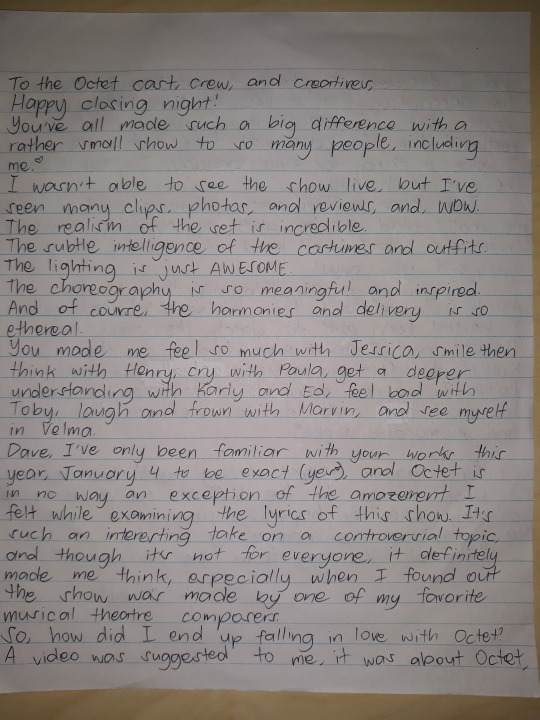
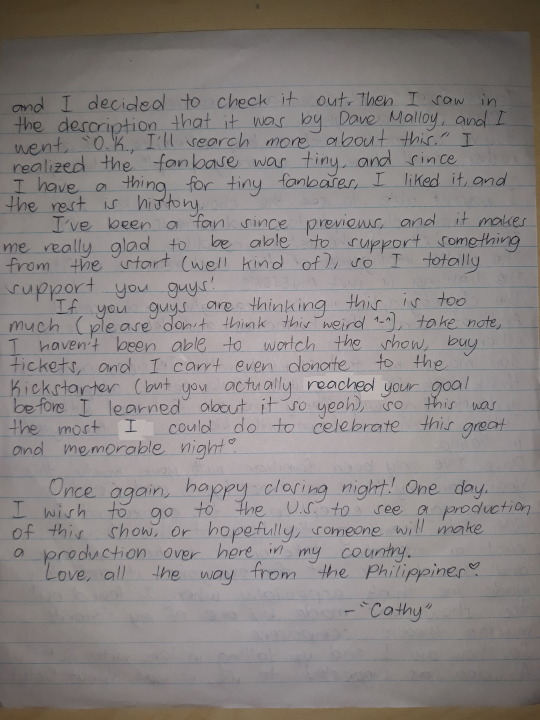
💞💞 a love letter to the cast and creatives of Octet🎱🎱
A HUGE SHOUTOUT TO @marleneoftheopera and @8tet FOR OFFERING TO POST THIS ON IG!!!!!! YOU GUYS ARE AMAZING!!!
#octet#dave malloy#malloysicals#musical theatre#off broadway#closing night#annie tippe#margo seibert#alex gibson#starr busby#kim blanck#adam bashian#justin gregory lopez#jd mollison#kuhoo verma#berry shares#my post#also pls don't ask why i put cathy instead of berry#it just is personal
2 notes
·
View notes
Text
Plan B offers a refreshing alternative to typical teen comedies
I’ve never watched a teen comedy on a streaming service without seeing a trailer first, being messaged a recommendation, or seeing mixed reviews on Twitter. This is especially true in the few cases with South Asian female leads, and after a handful of disappointing casting choices and plot points, I don’t usually have high hopes in the instances I do see someone who looks like me playing the main character.
The Indian Girl is usually highly academically driven, makes self-deprecating jokes about her body hair, and a socially awkward virgin with her eyes set on the (nearly) unattainable athletic, popular white boy. Whether it’s been the writing of Mindy Kaling with The Mindy Project (2012-2015) or Never Have I Ever (2020 - present), Natalie Krinsky’s The Broken Hearts Gallery (2020), you can never have all three:
- a central romance between two South Asian characters
- a South Asian female lead
- the brown woman not being her own constant punchline
I stumbled across Plan B (2021), which is directed by Natalie Morales from a screenplay written by Parthian Srinivasan and Joshua Levy, while mindlessly scrolling Hulu with my partner at the time, who — and I am aware of the hypocrisy — is a white man. Social distancing mandates had caused me to stay home more than ever and entertain shows and movies I hadn’t never caught onto or heard of. I no longer had the excuse of work/grad school because we were off for the summer or other plans to keep me away from what I presumed I would not enjoy. I’m definitely known in my social and even academic/professional circles as a vocational, outspoken media critic (film degree needed to go somewhere), particularly in regards to anything that attempts to champion representation for Indian women and/or queer folks.
“Ugh, this is probably going to be about a nerdy Indian girl who wants to ‘lose her virginity’ to a generic white boy,” I remember muttering, not even clicking to see the trailer or Wikipedia’ing the entire cast as I often do when I think I recognize someone from somewhere. (Hunter was the only vaguely familiar face; he is played by Michael Provost, who is known for playing Brick Armstrong in Netflix’s 2018-2019 series Insatiable, another show I decided to delve into during the pandemic.)
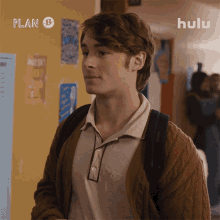
Again, I am aware that I myself carry biases and am constantly working through my own self-criticism as the highly academically driven Indian girl who “lost her virginity” to a white boy, too. I think that is part of my frustration with media that reinforces my own unoriginality and susceptibility to the most common narrative about people like me that could ever be made available to the masses.
My partner headed home for the night, and I ended up watching Plan B anyways while waiting for the text that he had arrived back at his place. This got me through more than half the film in the meantime. Call it a desire to chase my confirmation bias, cure my boredom, or maybe even indulge in a brief moment of open-mindedness and giving the movie a chance. Sometimes, we just click on something to help us pass the time, don’t we?
The movie starts as many teen flicks do, with an alternating montage sequence of our main character, Sunny (played by Kuhoo Verma) getting ready for the school day, contrasted by the routine of her best friend, Lupe (played by Victoria Moroles), the rebellious stoner type who begins vaping upon waking up. The dollhouse-like interior of Sunny’s bedroom is where she turns her stuffed elephant’s eyes away as she starts masturbating to an image of a naked person in her biology textbook, the closest she gets to a penis (until later that night). This scene alone probably should’ve been a sign that the nerdy virgin trope is being exaggerated, and this film is being ironic, but my past viewership of such narratives and depictions made it take me a bit longer to realize Plan B is actually a parody of everything I love to hate about these kinds of movies. And it did it so well, it seemed sincere. Which makes everything even funnier.

Religious, conservative parents who leave little room for independence, mistakes, or creative expression. Check. This will fuel the fire, the secrecy, the mayhem that is going to ensue to keep whatever the secret is.
Establishing shots of a small, boring town that cannot contain their personalities or desires. Check. check.
Solo slumber parties with the only other friend you have who also indulges your nerdy hobbies, like anime and thousand-piece puzzles. Okay. Slumber party becomes a “rager” to capture the attention of the love interest while Sunny’s mom is conveniently out of town. Nothing new here.
But I was ignoring, in my own hunt for righteousness, that Sunny and Lupe are witty, unconcerned with popularity, and content in each other’s company. There are love interests, sure, but these girls aren’t pining for school wide validation, trying to win prom queen, or victims of a cruel bet. Megan and Emma are the popular girls (thin, white blondes who display their sexuality more explicitly to contrast the inexperienced Sunny) who get barely any screen time, with very little dialogue. Looking back, that might be one of the top three things I appreciate about Plan B. It didn’t entertain the idea that Sunny or Lupe wanted to be Megan or Emma, or that the other girls were necessarily the enemy.
Our dynamic duo is just angsty and horny, in a way that is honest and humorous without being crass or a regurgitation of every other portrayal of a sexually frustrated main character who will do whatever it takes to get the guy. In this story, the main character is driven by the will to do whatever it takes to not be pregnant, which will be more devastating for her than graduating as a virgin.
Lupe’s astute observations, snappy comebacks, and apathy for the opinions or well-being of anyone but her best friend complements Sunny’s anxious demeanor well. At one point, she counters Sunny’s description of her crush Hunter as “an athletic librarian” with the remark that wearing a cardigan while playing hockey actually just gives off “major guidance counselor vibes”. Lupe’s presence and commentary is not only a comedic foil to Sunny, but throughout the film, we see how she does not sacrifice her independent thoughts and desires to serve Sunny’s story, and Lupe herself gets a proper plot line that is explored meaningfully while the night goes on.
Like I said, it’s nice to not see screen time dominated by the forgettable popular girls (I had to Google the character list, that’s how little they are mentioned). I think the most memorable interaction was when one of the girls, Megan, grabs Hunter’s hockey stick euphemistically and comments how it’s dry(?) and proceeds to run her tongue upside it, as Hunter advises, “I definitely wouldn’t lick it.”
Some other classic traits of the teen comedy you may be able to spot are well distributed throughout the scenes in the high school and podunk small town places Sunny and Lupe that head to in their wild goose chase for a Plan B pill or the generous doors of Planned Parenthood.
The characters themselves often make jabs at many of the tropes that they represent themselves, reminiscent of the meta-comedic and punchy writing of Mean Girls (2004). There’s even a random line reminiscent of the tampon/pad joke about heavy flows, but I don’t know if that parallel was intentional. I also never expected to talk about that movie like it’s historical cinema. Oof.
Even socially uncoordinated and easily flustered Sunny provides a lot of snappy one-liners that land as criticisms of how teenage/Indian girls are perceived and not as conformity. And Kuhoo’s comedic timing and facial expressions — notably the entire time her character is accidentally high — are some definite highlights. Sunny is an underdog I was actually rooting for, and not because you’re supposed to even when the character is unlikeable. Sunny is likeable, and when we really only have the messy Mindy Lahiri or Devi Vishwakumar as examples, it was nice to want things to work out for her for reasons other than “Oh, finally an Indian girl as the lead! I have to like her no matter what!” Sometimes, I feel hesitant to be as critical of the few media representations I have because I don’t want to come across like I haven’t worked on my internalized racism or misogyny; I have and of course I still am. At the same time, there are productions in which the few South Asian characters I get to see are very difficult to defend, even if they are written as quirky, understandably flawed, or a “hot mess”.
Plan B makes room, without negotiating, for other important parts of teenagehood. At the root of the story is the bond between two best friends who treat each other’s company as what will make high school, heartache, an unexpected pregnancy, angry parents all survivable. Sunny and Lupe’s friendship is a love story in itself, as they show audience members all you really need is that one best friend at a party, on a road trip, through all the chaos of your life, as the trusted keeper of your secrets.

Similar to Never Have I Ever’s Devi and other teen movies, Sunny also participates in the omission of truth about who, if anyone, she loses her virginity to. Hunter isn’t concerned with public image or aligns with the dumb jock stereotype, instead offering a more surprising charm that even Sunny isn’t aware of at first. It is worth noting how much focus is placed on giving dimension to side characters in this movie, even if how they act doesn’t change the course of the plot overall.
I also appreciate the mention of the Indian Mafia, which, if you don’t already know what it is, you will find out after watching. And despite Lupe’s reassurance and this movie being fiction, it is very much real.
And so is the problematic “conscience clause”, mentioned early on as an obstacle to Sunny’s body autonomy. Important reminders of the additional barriers that young women of colour face in seeking reproductive healthcare in this country can be found throughout the mayhem that the two friends have to endure. At the same time, the movie also makes space for a low brow line in which Sunny complains that it will take 69 hours to get to the nearest Planned Parenthood.
Without denying or pigeon-holing the experiences of closeted queer teens, Plan B also reminds viewers that there are places throughout the country where kids do not feel safe to be themselves and do find solace, support, and love in online communities.
I found both Kuhoo Verma’s and Victoria Moroles’ individual portrayals of 17-year-olds juggling various aspects of their identities and their dynamic together as breakout performances, and I look forward to seeing what else they star in.
The pacing of the film is naturally aided by the race against the clock when it comes to the efficacy of retrieving and taking the morning after pill, but there is a fun rhythm that balances coincidence, pleasant surprises, and complete shock that challenged everything I thought I was going to see by the time I got to the middle of the movie. Often, there is a lazy montage to indicate the passage of time and the viewer has the responsibility of filling in the plot with an understanding that relationships have developed, changed, or fizzled out. But Plan B keeps you comfortably engaged, and by the time my partner texted me that he was home, I happily accepted that I actually had no idea what was going to happen in this movie and that it had grown on me. I was enjoying the ride that Sunny and Lupe’s overnight misadventures were taking me on as an amused bystander, and that wasn’t a feeling I had gotten from anything aimed at a young adult audience in awhile.
It even captures nuanced parts of being a teenager of color in a small, predominantly white town, like the gentle, fluttery feeling of finally getting to spend time with someone who helps you peel back so many layers, the unexpected blending of friend groups, innocent misinterpretations, and the underestimation of the love of parents who do try to sustain tradition but still know how to unconditionally love and support their children. This is especially important to see in 2021.
I appreciate the soft, mundane but vulnerable moments where the characters grow closer. There doesn’t need to be a massive blow out or tear that needs mending - though those moments do occur - for relationships to progress, and it takes good writing to not have to rely on “this only happens in movies” moments. People become friends and sometimes more in the regular, everyday moments during conversations, meals, or in chilly parking lots in South Dakota of all places.
In hindsight, I am glad I didn’t watch the trailer for Plan B, even if it likely would have meant I would have picked up on what was ironically or unironically included in the story. Because it meant that I got to enjoy the movie as a chaotic buddy comedy (Verma and Moroles are seriously hilarious together) and remove the lens of criticizing just how Indian and queer and feminist based on previous disappointments it could be. I wasn’t even watching it with the intention to write a review after, which would otherwise automatically apply the critical lens and often ruins my own viewing experience because I’m mentally picking the movie or show apart.
I’m writing this review mostly to say I liked having my skepticism put in check. Scattered across various stereotypical plot points were instances that made me appreciate that people are still making these types of movies, a genre I was hoping would die out if it was going to keep giving us the same formula.
Because that means there are going to be movies like Plan B, which take a different route.
#plan b#hulu#kuhoo verma#victoria moroles#film review#pastelpressmachine#sincerelybillie#desi#desi representation#south asian
13 notes
·
View notes
Text
Dreamcasting Broadway: LES MISÉRABLES
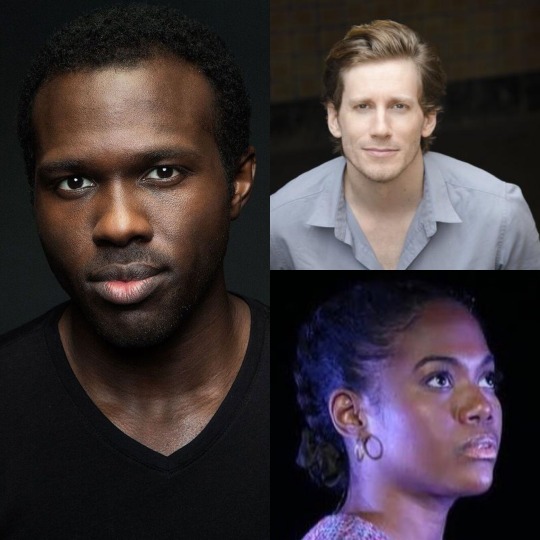
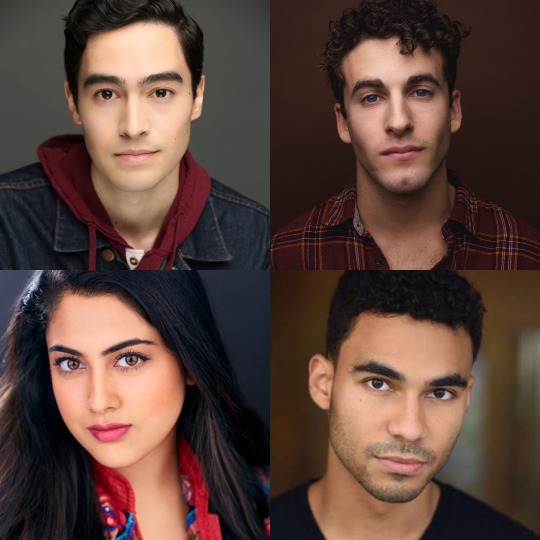
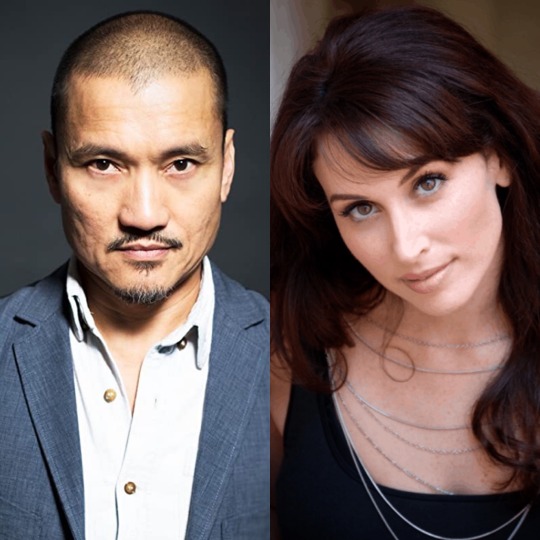

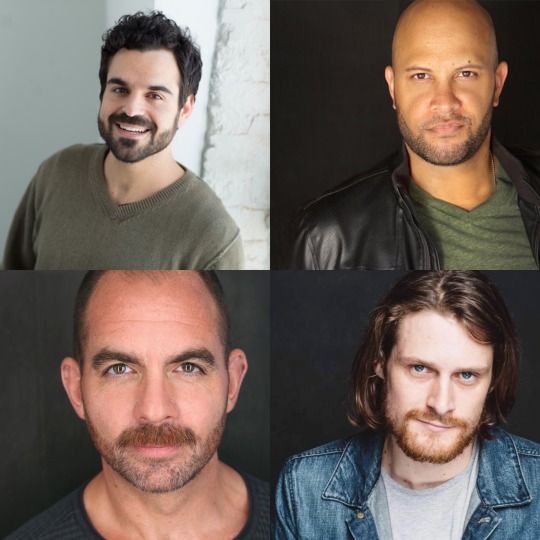
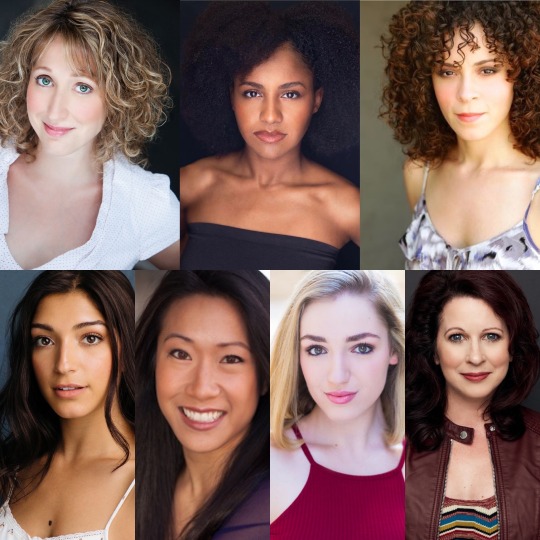
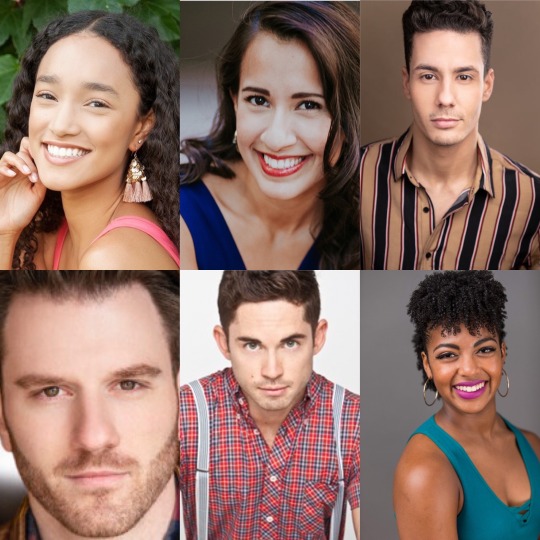
“To love another person is to see the face of God.”
Dreamcasting Broadway: Les Misérables
Joshua Henry as Jean Valjean
Andrew Samonsky as Javert
Danyel Fulton as Fantine
Troy Iwata as Marius
Danny Harris Kornfeld as Éponine
Kuhoo Verma as Cosette
Austin Scott as Enjolras
Jon Jon Briones as Thénardier
Lesli Margherita as Madame Thénardier
Pietro Bongiovanni as Feuilly/Fauchelevent/Ensemble (Enjolras u/s)
Deon’te Goodman as Combeferre/Champmathieu (Javert u/s)
Rohit Gopal as Prouvaire/Pimp (Marius u/s)
Javier Ignacio as Lesgles/Constable/Ensemble
Ezra Menas as Joly/Constable/Ensemble (Marius u/s)
Heath Saunders as Grantaire/Bamatabois/Ensemble
Matthew Schatz as Courfeyrac/Innkeeper/Laborer
Ashkon Davaran as Bishop of Digne/Claquesous/Ensemble (Valjean u/s)
Conroe Brooks as Babet/Factory Foreman
David Michael Garry as Brujon/Farmer (Javert u/s, Thénardier u/s)
Kaleb Wells as Montparnasse/Loudhailer (Valjean u/s, Enjolras u/s)
Courtney Balan as Factory Worker/Whore
Lauryn Hobbs as Factory Worker/Young Whore/Ensemble (Fantine u/s, Éponine u/s)
Genny Lis Padilla as Factory Worker/Locket Crone/Ensemble
Chiara Trentalange as Factory Girl/Ensemble (Fantine u/s)
Kay Trinidad as Factory Worker/Hair Hag/Ensemble (Madame Thénardier u/s)
Scarlett Walker as Innkeeper’s Wife/Factory Worker/Whore/Ensemble (Cosette u/s)
Kirsten Wyatt as Factory Worker/Old Woman/Whore (Madame Thénardier u/s)
Isa Antonetti as Swing (Éponine u/s)
Vanessa Becerra as Swing (Cosette u/s)
Alexander Gil Cruz as Swing
Rory Donovan as Swing (Thénardier u/s)
Stephen Hernandez as Swing
Maya Imani as Swing
This is another conceptual production I have in mind, influenced by the 2014 Dallas Theatre Center production. Imagine a contemporary look at the script, with more attention being paid to telling the story for how we need it today rather than how it’s always been produced. If you wanna know more or just talk about it with me, feel free to shoot me a DM.
(Also can y’all tell how much I’m crushing on Heath Saunders??)
#dreamcasting#dreamcastingbroadway#les misérables#les miserables#joshua henry#andrew samonsky#danyel fulton#troy iwata#danny harris kornfeld#kuhoo verma#austin scott#jon jon briones#lesli margherita#heath saunders#broadway#musical#musical theatre#musical theater#theatre#theater
4 notes
·
View notes
Text
alright i’ve been seeing conflicting opinions about octet and i want to talk about this show (please keep in mind that i haven’t listened to a full audio yet so if i’m missing something pls lmk!)
my favorite thing about it is that it’s not “internet bad” or “internet good”; yes, some of the lyrics taken at face value can make it sound like dave is saying the internet is terrible for us but it’s important to take the context into account. the characters are at a support group for internet addiction, so of course their stories tend to focus on the toxic aspects of the internet (and technology in general)
@foreverdreamingofhamilton pointed out that “[the internet] has it’s good parts and bad parts and acknowledging those bad parts doesn’t take away from the good. if anything, talking about the bad parts and trying to assess them just adds to it”
(side note: dave’s genius annotations are amazing, and he shares the research he did while writing the show and i highly recommend reading them)
the pivotal moment for me is beautiful, a song about how the internet can be a force for good, and kuhoo verma just knocks it out of the park
when it comes to analyzing musicals, lyrics are important, but you also need to take how they’re presented into account: who’s singing, who isn’t, what else is happening musically, blocking (if you can watch it), etc.
musically, beautiful is the only song in which the sharer is the only one singing. to me, it’s a way for dave to emphasize the lyrics. there’s nothing to muddle or overwhelm what she’s saying. it’s one of the last things the audience will hear, and that speaks volumes to what dave wants to tell us
i’m going to quote @foreverdreamingofhamilton again: “also i just love that the internet is the one thing she doesn’t call beautiful? like she describes it as ugly chaos but then it helped her find the beauty in so many other things inculding herself. like she struggled to love herself but then the internet led her to a girl she loves and she’s like this girl is beautiful i love her and she is so similar to me i’m also beautiful. like all the things she dislikes about herself in the beginning are things she lists about the other girl who’s beautiful”
(i also think it’s worth noting that the cover image for the ocr is “the fool” aka velma’s card)
overall, as someone who’s been on tumblr for almost eight years now, i can tell you that octet really reflects my personal experience, and i just love the show and think it’s an incredibly important work that we need right now
43 notes
·
View notes
Text
Medusa The Musical Masterpost
(lots of M’s, wow.)
So, Medusa The Musical (Click the link, it’s the website) is an upcoming musical that tells the story of the myth of Medusa🐍. You can listen to it here.
So, you want to know more about the show and the people involved?
Easy! Below I’ve linked sources to the original myth, and other works by the people involved.
The Source
Like all Ancient Greek Myths, there’s no singular “source” for the tale of Medusa. This handy link here, however, is a good starting point, it’s sort of like a sparknotes of it. Linking anything else would be a huge rabbit hole of infinite websites/reading materials, so just start with that one for now!
The Crew
So, Medusa’s creative team consists of a lot of cool future Tony Award Winners. They have bios on the website, but I’ll link (some of) their projects here for easy accessibility and as a summary. If I leave something out, its due to my own ease and accessibility, not because I see it as an unimportant project.
The show was written by Wes Braver and Rachel Dean. Wes Braver has worked on other shows in the past such as Hear No Evil in the Year 2090, Galapago, the song cycle Space Cases, and the concept album METADATA. He also wrote songs for the moviemusical Chatsworth and he wrote the score for the film Youth. Rachel Dean has played the piano for the Broadway productions of Hamilton and Moulin Rouge! - pretty mighty résumé, if you ask me! Gods, only in my pipedreams will I get to do that. She's working on other shows too - The Anxiety Project, Unmasked, and The Ballad of Janis Matthews and the Dodo Scouts! [Also, insert a Preludes joke about a “Rach” who plays the piano here.] Sylvie Scowcroft is the producer! She also worked on Hear/2090 and Galapago with Wes, and she's produced Company by Sondheim as well in the past! Hot damn!
Chloe Treat is the director - hell yes I pretty much exclusively stan female directors at this point, especially in the Greek Myth shows field. As an anecdote, Chloe is in a relationship with Or Matias, who was the MD for some Dave Malloy shows such as Preludes and Octet and Great Comet, so it’s cool that I get to stan another musical theatre power couple! (Seriously, I knew that I recognized the name.) As for Chloe, you can find some stuff on her website. She’s mostly directed college/university shows, but she also did Eco Village off-Broadway. Looking back, that makes me even more sad to have missed that show.
Matt Castle the music director and oh I love him already because he’s been at the Signature Theatre in the past. Most of his stuff is regional - but he did do a number of off-Broadway shows and was an actor in the Company 2007 revival! He's also currently working on Scotland PA off-Broadway with his husband as an orchestrator!!
Kate Lumpkin is the casting director. Waaayyy too much to list here. Here is her website for ease.
Kai Harada is the Sound Designer. He worked in some Broadway shows I love such as Head Over Heels, The Band's Visit, Amélie, Sunday in the Park With George, Fun Home (lesbian rights!), and a couple of A.R.T. and Off-Broadway shows, etc.
Frank Galgano is the Creative Consultant. Guess what - he’s married to the music director, Matt Castle! 🏳️🌈It appears as if a lot of their work seems to intersect!
Evan Bernardin Productions/Gwynne Richmond is the general management team. Another hefty list of other projects, needless to say, so I’ll just link y’all to their site.
The Cast
Oh boy, I love the Medusa cast so much. Particularly Kuhoo Verma. But more on them later. Half the cast has been in either a Dave Malloy show or Nikola Tesla Drops The Beat, which are my two Niche Theatre Brands™️ - that and the fact that its a Greek Mythology musical makes me legally obligated to stan forever, as the cool kids say. But I digress!
The show features Alexia Sielo as Medusa herself. She was an understudy in We Are The Tigers Off-Broadway and is a cofounder of womenofcoloronbroadway!!
L. Steven Taylor will be portraying Perseus, and he’s been in The Lion King (Broadway) several times - you can see behind-the-scenes pictures on playbill.com!
Kate Shindle is Athena, and she’s also the president of Actor’s Equity, which is....incredible, honestly. She was Vivienne in the Original Broadway Production of Legally Blonde.
Theo Stockman is Poseidon. He's been in Hair, American Idiot, and American Psycho.
Heidi Blickenstaff is Steno. She’s been in numerous shows as well, like Something Rotten!, The Little Mermaid, [title of show], and The Full Monty.
Ally Bonino is Euryale, and the project I primarily know Ally from is a weird electronic rock musical that portrays Nikola Tesla as a DJ who gets into rap battles with Thomas Edison. She played his pigeon friend and her solo slaps.
Mykal Kilgore is Tiresias - he was also in Tesla along with Ally - he was Edison! He also writes solo music, and he has an album called A Man Born Black, which is really lovely. He was in the Jesus Christ Superstar concert as well!
Vivienne Cleary will be Eritha, and she’s very up-and-coming. She's done a lot of regional stuff and the off-bway production of Once Upon A Mattress.
Kuhoo Verma is Karphathia... Kuhoo fucking Verma, y’all, the person that I cried in front of at Octet. Kuhoo is a legend. She’s barely 23 years old and she’s already out here living her best life! She’s also openly nonbinary and queer, which makes me really happy. She’s been in Octet by Dave Malloy (!!!) and The Big Sick (a movie, not a musical/play, highly recommended). She’s also very sweet. I have a bit of a crush on her, not gonna lie.
Nick Belton is Antiochus/Archon, and he has also worked with Dave Malloy in the past. He starred in Great Comet as Andrey/Old Prince Bolkonsky. He was also in the most recent Carousel revival! He starred in Hair too, so that’s another former project that some of the cast members share.
Last but never least, Justin Gregory Lopez is Belo, and he was also in Octet along with Kuhoo Verma!!
Long story short, this musical is a masterpiece with super talented people in it and I am hyped.
#medusa the musical#medusa#hadestown#octet#the great comet#the lightning thief#mythic#hercules#<- if you like any of these tagged shows u should check this out#ehh i'm not tagging everyone though#too much effort#masterpost#hissing
22 notes
·
View notes
Link
Octet, May 25, 2019 - 2pm Signature Theatre
Cast: Adam Bashian as Ed Kim Blanck as Karly Starr Busby as Paula Alex Gibson as Henry Justin Gregory Lopez as Toby JD Mollison as Marvin Margo Seibert as Jessica Kuhoo Verma as Velma
Notes: The songs are labeled as they're labeled in the program, including the number, but those numbers might differ from the track numbers, because I kept the dialogue in tact on their own tracks.
The audio gets blown out at times--we were seated in the first row and my bag was on the ground. The first row was also made up of folding chairs, so anytime I (or the person next to me) moved, there's a creaking noise.
I'm not sure what the high pitched whirring in the background was, but it was present in the theatre as well--it might have had something to do with the equipment they were using to audio-describe the performance, which was going on that afternoon.
88 notes
·
View notes
Text




IS THIS REAL!! WAS TODAY REAL!!!
I met DAVID FUCKING MALLOY
And KUHOO! VERMA!
AND ALEX GIBBY AND ADAM BASHIAN! THEY APPROACHED ME TO TALK ABOUT MY SHIRT! AND KUHOO GOT SELFIES W ME FOR THEIR OWN PHONE!! AND DAVE SHOOK MY HAND AND SAID HE RECOGNIZED ME BECAUSE OF MY SHIRT (I posted it about it online after I made it.)
AND! THE SHOW ITSELF! WAS SO BEAUTIFUL! AND SO RELATABLE! A CALLOUT POST! That cast can HARMONIZE. IT WAS SO FUNNY AND SO SAD AND SO BEAUTIFUL AND I CANT CHOSE A FAVORITE SONG OR PERSON OR ANYTHING BECAUSE I LOVE EVERYONE!!!
[id: 4 photos of my day at Octet. The first one is my signed playbill, which features a black and white version of the Fool tarot card. It has been signed by Dave, Kuhoo, Alex, and Adam. The second photo is of me and Kuhoo Verma, the third of me and Dave Malloy. The fourth image is a panorama of the theatre set, which features 8 chairs, three tables, and coffee in the background. End id]
23 notes
·
View notes
Text
Can life be lived offline anymore? That’s what the eight characters are exploring as part of an Internet addiction support group in “Octet,” a beautifully sung a cappella chamber musical by Dave Malloy.
So much feels so smart and spot-on about this latest theater piece from the creator and composer of “Natasha, Pierre and the Great Comet of 1812,” that theatergoers may want to excuse the show’s excesses. We will also probably feel forgiving toward the addicted characters’ obsessions and compulsions. Their problems, after all, are likely to be our own.
Cast of Octet, left to right: Justin Gregory Lopez as Toby, Starr Busby as Paula, Adam Bashian as Ed, J.D. Mollison as Marvin (in front), Margo Seibert as Jessica, Alex Gibson as Henry, Kuhoo Verma as Velma
Kuhoo Verma as Velma (in light green jacket).
There are so many ways these days to be gripped by “the Monster,” which is what the addicts of “Octet” call online life. In “Hymn: Monster,” the entire cast sings, sounding like a cross between Allen Ginsberg and Rent:
It’s a new kind of monster It sputters sighs and cries Raving in garbage tongues and grunts Proclamations provocations Fabrications defamations Exclamations indignation And poor punctuation
One by one the characters get a chance to share their personal stories of addiction with the group, in songs that have both pleasing melodies and some pointed lyrics. Jessica is the victim of public shaming via social media because of a video of her yelling at a stranger that went viral – but she can’t keep from Googling herself to check out the latest meme at her expense.( “It was like my eyes were sewn open/ with a piece of electric thread/Go to bed.”) Henry’s addiction is to online gaming, especially any games that feature candy (“All the candy never stops/Dayglo go-go underground/ No one else around.”) For Ed and Karly, it’s dating apps (“So many men in my pocket”/I roll through my infinite scroll.) and also porn (“Porn is solitaire/Scentless and safe/We have sucked the sacrament out of sex.”) Toby rants on Internet chat rooms (“When I’m in the real world I can’t even interface/I just wanna scroll down, you know?/ Scroll down, scroll down, you know?/ Get to the fucking point.”) In “Glow,” Paula sings about how her husband’s attachment to his phone has gotten in the way of their marriage – the title describes the light from his phone at night, which he scrolls through, his back to her, in bed. (His thumb scrolls through his phone/I feel it ripple in my bones”) There is great metaphorical aptness in the arrangements for these songs. They are being presented unaccompanied by musical instruments – just like the characters who sing them are trying to do without technology, at least for the duration of the support group meeting. And the songs include harmonious choral support (Jessica’s song, for example, is entitled “Refresh,” which is the gospel-like refrain from what have become her back-up singers) — just like the group offers support to each of its members. It’s not just metaphors that “Octet” gets right. Scenic designers Amy Rubin and Brittany Vasta are hilariously meticulous in their recreation of the kind of church basement that houses 12-step meetings – the bulletin board cluttered with very realistic-looking announcements of other support groups and protests and rallies; the free coffee; even the precise way the wood floor is partially polished, partially scuffed and has tiles missing. I’ve been impressed with David Malloy’s commitment to adapting serious art into popular entertainment for a decade, ever since I saw the Ontological-Hysteric Theater production of his “Three Pianos,” which he described as “a drunken romp through Schubert’s ‘Winterreise.’” It takes more than musical ability to fashion a tuneful pop opera out of a section of War And Peace; it takes a kind of fearless intelligence. But rather than applying that intelligence to make an arcane subject accessible, as he has done in much of his work, Malloy too often attempts just the opposite in “Octet.” He injects the arcane into what is to most New York theatergoers an inherently accessible subject, the excesses of online life. At its most harmless, a boastful-seeming intelligence seeps into some of the lyrics. In “Glow,” for example, Paula follows the straightforward We don’t sleep well My husband and I
with
Our Circadian rhythms Corrupted by the sallow blue glow of a screen Sucking our souls and melatonin
Too many of the characters get so much of this same high-toned vocabulary for us to hear it as part of each individual’s personality. This is especially true since we learn little about most of these characters other than their addictions. Rather, these lines sound like something Dave Malloy would say, while (excuse me) showing off (perhaps unconsciously.)
We do learn that Marvin (J.D. Mollison) is a scientist, and his scene is one of the two that diverge from the rest. He tells an anecdote about how he and his colleagues at a lab met God, who was first a computer-like voice but then an 11 year old girl dressed in a mermaid’s outfit. As Marvin catalogues the scientists’ reactions, trying out different hypotheses, the scene becomes an exploration/satire of the disconnect between science and religion. “We beheld an infinity of wonders—and yet we sat at our desks in stoic calculation, stripped of awe, paralyzed by the unforgiving relentlessness of our intellect.” One could argue with only a bit of a stretch that this fits in with the theme, if not the narrative, of “Octet” – the damage caused to our psyche by our reliance on technology. It’s more difficult to see the point of the injection of the esoteric practice of tarot cards. The only first-time visitor to the support group, Velma (Kuhoo Verma), eventually reveals she’s “into tarot.” But Malloy himself seems to be too – in the playbill, each of the 12 songs is paired with a tarot card, e.g. 1. Hymn: The Forest (XVIII, The Moon.)
I have little doubt this use of tarot and similarly obscure elements is well thought-out, just as I trust in Malloy’s sincerity when in an insert in the program, he lists more than 50 texts, games, theatre, films, music, podcasts and tarot that inspired “Octet,” adding “…this list is by no means exhaustive.” But it is a tad exhausting. Luckily, this first musical produced by Signature Theatre brings out enough of what’s best about Malloy’s work – thanks to Annie Tippe’s lively direction, the eight-member cast’s lovely singing, and the delightful musical direction by Or Matias — to justify the 100-minute respite from gazing at your screens.
Octet Music, lyrics and book by Dave Malloy; directed by Annie Tippe; music supervision and music direction by Or Matias; scenic design by Amy Rubin and Brittany Vasta; lighting by Christopher Bowser; sound by Hidenori Nakajo; production stage manager, Jhanaë Bonnick Cast: Adam Bashian (Ed), Kim Blanck (Karly), Starr Busby (Paula), Alex Gibson (Henry), Justin Gregory Lopez (Toby), J.D. Mollison (Marvin), Margo Seibert (Jessica) and Kuhoo Verma (Velma). Running time: 100 minutes with no intermission Tickets: $99. (The only tickets available are after June 18 and so no longer at the subsidized price) Octet is on stage through June 30
Dave Malloy’s Octet Review: Internet Addicts Sing Their Support A Capella Can life be lived offline anymore? That’s what the eight characters are exploring as part of an Internet addiction support group in “Octet,” a beautifully sung a cappella chamber musical by Dave Malloy.
0 notes
Text
octet - 5/25/19, 2pm
Hello, hello, I'm back from New Jersey! Which, you probably didn't even know I left, because I never post here anymore, but since we've yet to find a new platform for fannish happenings, I don't really have anywhere else to post show notes and the like.
Anyway, we saw Octet and Hadestown over the long weekend. I saw Hadestown at the NYTW in 2016, but I saw it the same day I saw Hamilton for the first time and my notes are lost to the ages. More about that later, though. (Tomorrow, probably.) For now, I'm going to focus on Octet.
So, here's what I knew about Octet going in: - Part of Dave Malloy's five year residency at the Signature Theatre - internet/discourse - Alex Gibson - a cappella? - support group?
The day before I did a little bit more digging, but I was kind of into going in blind, so I didn't dig too much.
Overall, I really liked it! My above the cut review is that, like all good Malloy shows, it brought up a lot of interesting concepts and shined a light on very relatable behaviors and ways of thinking. It doesn't really have a plot or narrative, and seems to largely exist to explore different types of internet denizens. As such, the characters vacillate between being actual people and being archetypes. I think all of this is fine--not everything needs to be a tautly plotted story, it's okay for this to be a song cycle, not a narrative musical. But I'm putting that out there for anyone who's thinking about going, just so you're aware when you head in.
First off, the set dressing is amazing. It looks just like a ratty church all purpose room, down to the way the light switches are labelled and the signs on the wall with clean-up instructions for group leaders. The walk in is papered with flyers advertising self-help groups, tutoring, charity walks, etc.
The show is set up like a support group meeting. A couple actors come in before the start and clean up the detritus of a bingo game and set up for the meeting, and then the group gathers and they begin. The group is “Friends of Saul,” and group members are told to put their phones off and in a basket against the wall, as they're here for various screen addictions.
Hymn: The Forest: This was a very Malloy song--it starts off a a meditation on a beautiful forest and takes a left turn. Delightful. Halfway through, Velma comes into the meeting and joins the other seven folks for the end of the hymn.
Refresh: Paula, the group leader, welcomes Velma to the group and tells them that Saul can’t be here this week, but he’s asked her to lead. She then asks if anyone wants to share. Jessica acquiesces and talks about how she was the subject of a viral video and has been "egosurfing" ever since, a compulsion to read all the shitty things strangers are saying about her without knowing her at all. (Unsurprisingly, Malloy says this song was heavily influenced by his feelings post-Comet.) Margo Seibert kills this song, which delves into our kneejerk tendency to pile on, sometimes without knowing or caring about context. It made me think a lot about how this goes both ways--the song focused on the negative, but obviously Milkshake Duck Syndrome is the same basic concept at its core.
Candy: Henry offers to share next. He talks about how his life is going okay at the moment, he's been on a few dates, but he hasn't had the heart to tell the guy about his "problem" yet, which is that he's addicted to video games. The song obviously invokes Candy Crush, but also refers to various other games including MMORPGs, FPSs, RPGs, and other phone puzzles games. I love this song--it is insanely catchy, Alex Gibson is delightful, and it's also profoundly sad and relatable. Henry eventually reveals that he uses games to avoid the real world and he's fairly sure he doesn't care if he dies, so he uses these games to string himself along and pass the time. Ouch. Also hashtag relatable content.
Glow: Paula shares next and talks about how she and her husband are both screen addicts and how they'll lie next to each other in bed, each on their own devices, ignoring the other, and how she wishes he would stop bringing the catastrophes of the world into their bed. She's lonely and sad and he doesn't see it because he doesn't look up from his phone. Starr Busby is incredible and, as a person who had to take an eight-month twitter break because she couldn’t handle the constant barrage of despair, I feel this song pretty hard.
Fugue State: Paula sets a metronome ticking for a five minute silent fugue state. The characters cycle through various thoughts about social media and the internet, calling out specific formatting for jokes and call out posts and "um actually"ing other people's comments in a whirlwind of commentary on how we interact with each other online. It's a very well put together song, but it's another one of those moments where it's clear this is a collection of songs about a concept rather than a narrative story.
Hymn: Monster: There's a five minute break, in which Henry approaches Velma, who's been quiet up to this point. She launches into a fast and awkward explanation of how she's on a self-imposed internet hiatus because she keeps getting tied up in discourse that's not good for her. She talks about being a part of a previous group that was not good and how she's since gotten into tarot instead, but there are parts of that group that aren't good, too (she delves into the Sephora Starter Witch Kit debacle), so instead she's taking a break and only talking to her one friend, whom she refers to constantly as "my friend." It was a very stark moment of self-recognition, tee bee aitch, and Velma is definitely the closest to the fannish millennial internet archetype. She says she found the group after Saul broke into a chat with her friend to tell her about it, so her friend said she had to come to check it out. After her monologue about all of this to Henry, the others return from their break to sing a hymn called "Monster" that talks about online trolls and how engaging with them and reading their exploits poisons your brain.
Solo: Karly and Ed alternate in this song, coming together in moments of similar sentiment. It's really an interesting way to handle the topics in question. Karly is singing about dating apps and how hard it is to find a dude who actually cares about her and the thin line between being asserting herself and the possibility of being the impetus for another MRA mass shooting. Ed, meanwhile, is a lonely dude who is on the verge of turning to the incel community because they can relate to his feelings of rejection and isolation. The whole thing is creepy and awful and very well blended--there's some empathy on both sides, while also making it clear how awful these dudes are.
Actually: This is Toby's song. Toby is a former punk kid turned conspiracy theorist. This is the song I struggled with the most. I just couldn't follow it narratively--I wasn't even 100% positive about the "conspiracy theorist" part until I could come home to read the lyrics. The lighting in this song was wonderful, though, and the ensemble was great. It just didn't click with me and it was harder for me to follow.
Little God: Dang, I loved this bit. It was the weirdest, and also had a distinctly Douglas Adams flavor, which was especially apt as I was attending the show on Towel Day. (So, honestly, it’s not surprising that I liked this bit so much, in retrospect.) Marvin, a neuroscientist, is up late with his new baby daughter when he has a vision from god. He chalks it up to a dream until god appears to him again the next morning. He goes to his lab, where all the other scientists have had a similar experience, and god appears to them in the visage of a little girl, whom they call Little God. They do a series of tests to prove whether god is real, and can manage to find scientific explanations for them all, trapped in this cycle of seeing wonderful things and then dissecting them clinically. Velma ends his story by telling him he's "The Hanged Man," the tarot card that represents everything one believes about oneself being flipped on its head.
Tower Tea Ceremony: The group starts a tea ceremony, passing around cups of tea, after which Paula comes around adding drops of something to the cups. Velma nervously asks what it is, and Paula calmly explains that it's a powerful group psychedelic that induces a five minute coma. Everyone else is chill with this, but Velma is visibly startled and nervous and does not drink her tea. Everyone else passes out, leaving her alone.
Beautiful: While everyone else is passed out, Velma sings her story. She was lonely and felt ugly and fat and stupid. She spent a lot of time alone and cut herself, but eventually found another girl just like her on the other side of the world. She had the same interests and liked the same things and felt the same way. She tells Velma that she's worthwhile and that there's light inside of her and, through seeing the same within her friend, she's able to start to accept that about herself. Kuhoo Verma is something else entirely on this song. It felt so personal and quiet and perfect. And, to be honest, it really anchored the show for me. After almost twenty-five years of being a nerdy, lonely kid on the internet, I tend to be very kneejerk protective of internet friendships. When people deride the internet as toxic, my urge is always to defend it because it's the source of all the good things in my life. I didn't have a lot of friends as a kid and I was socially anxious, but the internet was a way for me to meet other people who liked the same weird things I liked. These days that's a much more common, accepted story, but it was weird and new in 1996, so I spent a lot of years either lying about how I knew my friends or insisting that the internet wasn't just pedophiles and murderers. Obviously in the years since, the internet has grown into something bigger and, frequently, more toxic than I could have imagined at ten, eleven years old on the AOL Jonny Quest message boards. The urge to defend it has never gone away, however, and so I was obviously a little nervous about this show. But I trust Dave and I know that he's a big ol' nerd like the rest of us and doesn't pretend to be above our petty, silly forms of entertainment. And I'm glad I did, because it's important to me that this was the song he ended on--a quiet reminder that there's good to be found on the internet, that it's not all bad, that parts of it can be life-saving.
Hymn: The Field: The show ends with the group closing out their meeting with another hymn. Paula tells everyone next week’s meeting will be somewhere else and that she’ll email the details. Velma says she isn’t sure if she’ll come back, and she’s told that it doesn’t matter—the same people don’t always come week to week, but Saul will make sure there are eight people in attendance. The hymn is a nice, sweet song about coming together beyond the fighting and ugliness to appreciate each other and the world.
So, yeah, overall, I enjoyed it. I really needed to sit and think about it for a little bit after first seeing it, and I think repeat listenings will find a lot more to enjoy about it. Like I said, there’s not so much a story or narrative to get lost in, but the individual songs hold up well in the loose framework of the show, and a lot of them are both catchy and thought-provoking in a very Malloy way. I’m glad I got to see it, and I’m interested to see where it goes from here, if anywhere.
53 notes
·
View notes